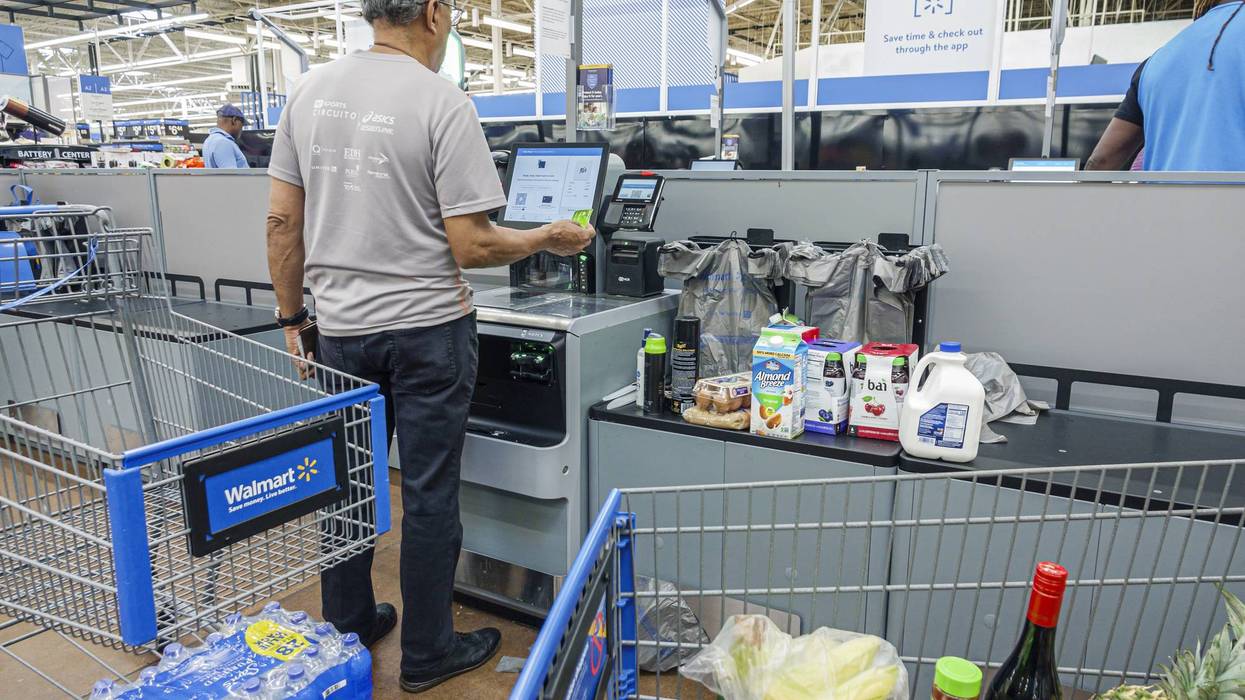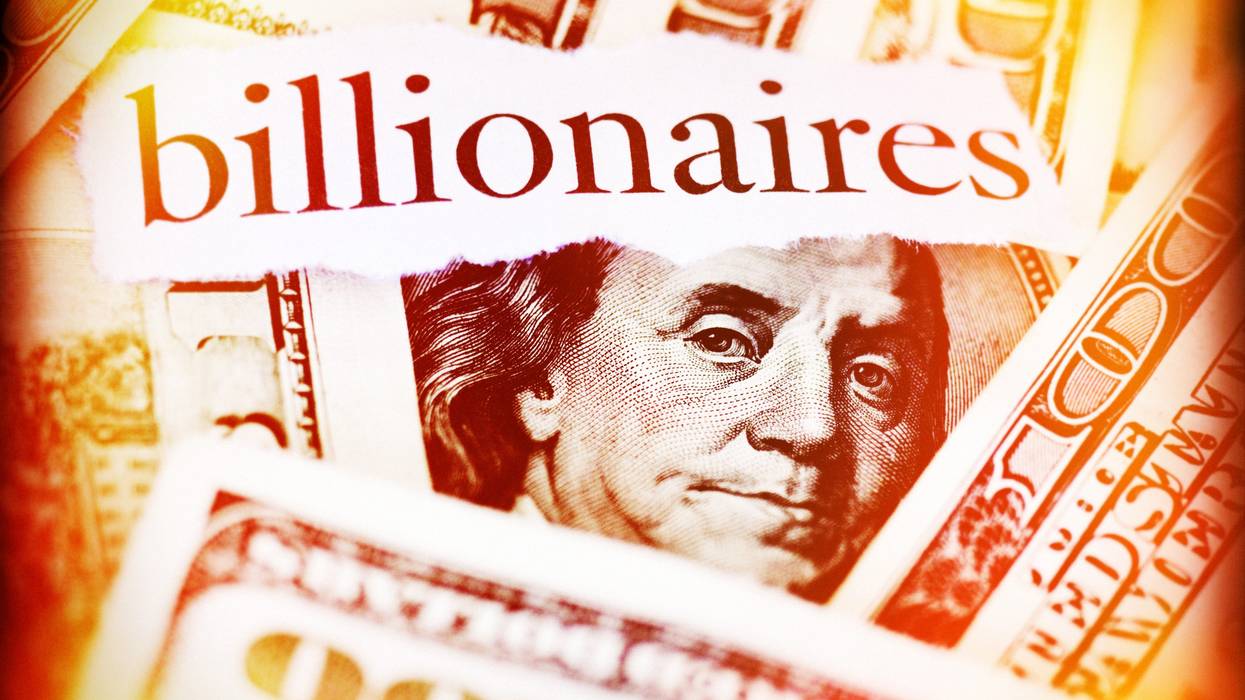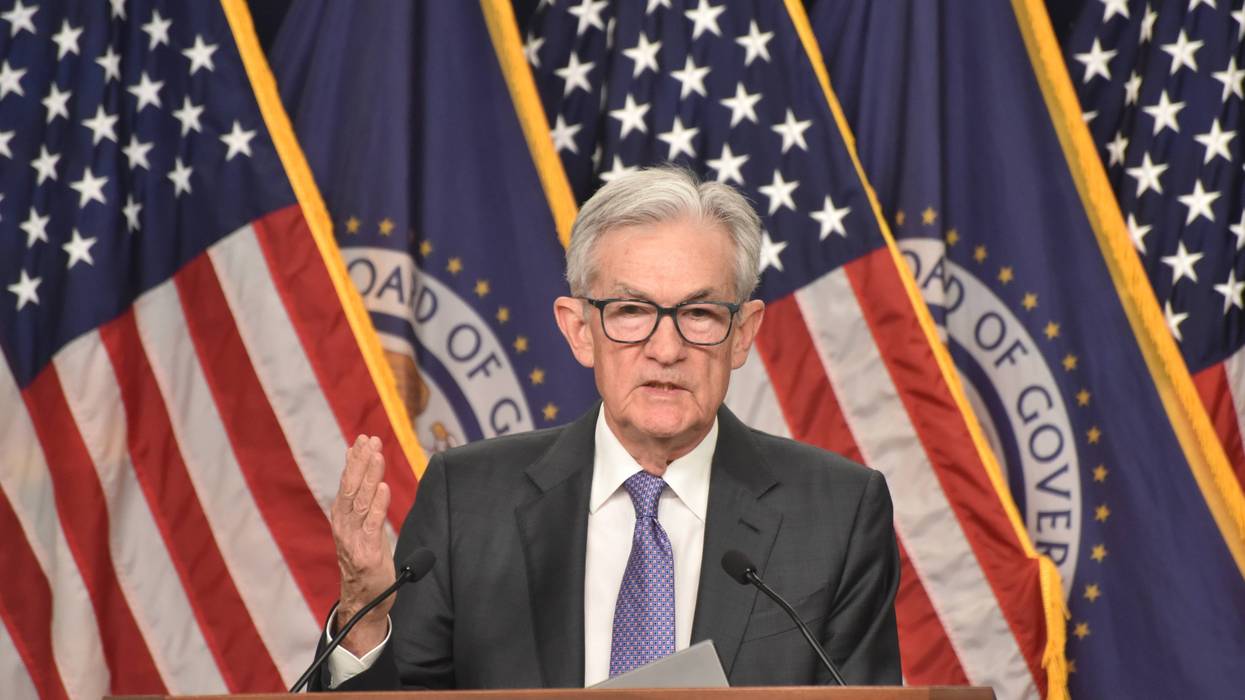Sweeping Coalition Backs AOC-Sanders Bill to Cap Credit Card Interest Rates at 10%
"Working families continue to struggle with unprecedented credit card debt and deserve to see Congress take legislative action to address this growing crisis."
As polling continues to show US consumers are pessimistic about an economy in which they face rising costs for everything from groceries to healthcare and housing under President Donald Trump, a "historic and diverse coalition" this week called on Congress to pass a bipartisan bill that would cap credit card interest rates at 10%.
The current average credit card interest rate is nearly double that, at 19.61%, according to Bankrate. It was even higher, over 20%, when US Sens. Bernie Sanders (I-Vt.) and Josh Hawley (R-Mo.) introduced the bill a year ago. Reps. Alexandria Ocasio-Cortez (D-NY) and Anna Paulina Luna (R-Fla.) lead the legislation in the House of Representatives.
Their push came in response to an unfulfilled pledge from Trump, whose campaign said in September 2024 that he "has promised to cap interest rates at 10% to provide temporary and immediate relief for hardworking Americans who are struggling to make ends meet and cannot afford hefty interest payments on top of the skyrocketing costs of mortgages, rent, groceries, and gas."
The Thursday letter to congressional leaders—signed by dozens of civil rights, consumer protection, labor, veteran, and other groups—points to that promise, as well as Trump's January social media post calling for a one-year 10% cap. It also notes that "in response to widespread Wall Street opposition to the president's recent announcement, Trump officials have begun to backtrack—instead promoting 'Trump Cards' that banks could voluntarily offer with temporary 10% interest rates."
"While the Trump administration appears to be twisting itself into knots to appease Wall Street bankers, working families continue to struggle with unprecedented credit card debt and deserve to see Congress take legislative action to address this growing crisis," the coalition stressed. "We urge your offices/committees to advance these bipartisan bills immediately and make this policy a reality."
Illustrating the need for the policy, the letter states that "Americans owe $1.21 trillion in aggregate credit card debt," "groceries now make up the majority of credit card purchases for most Americans," and "older Americans are charging everyday purchases like gas, food, healthcare expenses, and even utilities on their credit cards."
"Not only are more Americans having to lean on their credit cards to make ends meet, but more are falling behind. Today, more than 12% of credit card debt is 90 days or more past due," the letter continues. "As Americans find themselves deeper in debt, credit card companies have been raking in record profits."
The federal bill would "save families $100 billion per year and provide interest savings of $899 per person on average per year," but also "not restrict most Americans' access to credit—directly refuting common banking lobbyist talking points," the coalition explained, citing research from Vanderbilt University. "Instead, banks would absorb the rate cut through a combinationof reduced profits, reduced advertising expenses, and reduced rewards to customers with lower credit scores (who would benefit more from the rate cuts)."
It also cites a recent analysis by the letter's lead group, Protect Borrowers, showing that "credit card delinquency rates in states that President Trump won are nearly 5 percentage points higher than in other states—with states like Mississippi, Louisiana, Alabama, Arkansas and South Carolina having the highest credit card delinquency rates."
When big banks charge 24% or 30% interest on credit cards, they are not engaged in the business of "making credit available." They are involved in extortion and loan sharking.Yes, we need to cap credit card interest rates at 10% and stop Wall Street from ripping off Americans.
[image or embed]
— Senator Bernie Sanders (@sanders.senate.gov) February 2, 2026 at 4:36 PM
"By providing billions of dollars in economic relief to working families, this legislation directly responds to the promises that candidate Donald Trump made to the American people last year," the groups wrote. "Recent polling has found that it is also incredibly popular by a jaw-dropping 8-to-1 margin among American voters across all political parties, spanning age, gender, race, and education level."
"It is clear: the American people support policymakers taking action to address the growing credit card crisis that is drowning millions of American families across the country in debt," the coalition concluded. "We stand ready to work with your offices to ensure that this bill becomes law and that working families get the economic relief they were promised and deserve."
Sanders and Hawley have similarly highlighted Trump's calls for the 10% rate cap in Fox News op-eds pushing for their legislation. In a Monday piece, Sanders wrote that "when Wall Street's greed and recklessness brought the economy to the verge of collapse in 2008, causing millions of Americans to lose their homes, jobs, and life savings, the taxpayers came to the rescue."
"The Federal Reserve gave these huge banks trillions of dollars in emergency loans at virtually zero interest. We bailed out the banks," he added. "Now it's time for Congress to stand with working families, end Wall Street greed, and pass legislation that caps credit card interest rates at 10%."


